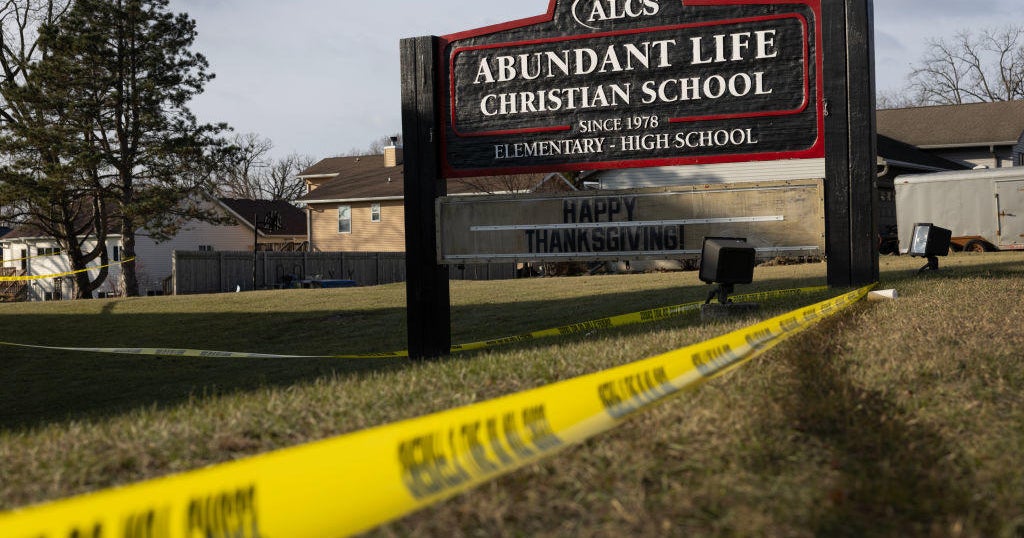CBS News
Alcohol can increase your cancer risk. What experts say about how much is too much.

Despite growing research that points to the negative health impacts of alcohol, many Americans are unaware of the connection between drinking and cancer risk.
A recent report from the American Association for Cancer Research found excessive levels of alcohol consumption increase the risk for six different types of cancer, including:
“Some of this is happening through chronic inflammation. We also know that alcohol changes the microbiome, so those are the bacteria that live in your gut, and that can also increase the risk,” Dr. Céline Gounder, CBS News medical contributor and editor-at-large for public health at KFF Health News, recently said on “CBS Mornings.”
But how much is too much when it comes to drinking? We asked experts what to know:
How much alcohol is bad for you?
“Excessive levels of alcohol” equates to about three or more drinks per day for women and four or more drinks per day for men, Gounder said.
According to the National Institute on Alcohol Abuse and Alcoholism, a standard alcoholic drink contains 14 grams (or 0.6 ounces) of pure alcohol. Generally, this amount is found in 12 ounces of beer, 5 ounces of wine and 1.5 ounces, or a “shot,” of 80-proof distilled spirits or liquor.
Other studies have shown, however, there is no “safe amount” of alcohol, Gounder said, particularly if you have underlying medical conditions.
“If you don’t drink, don’t start drinking. If you do drink, really try to keep it within moderation,” she said.
Dr. Amy Commander, medical director of the Mass General Cancer Center specializing in breast cancer, told CBS News alcohol is the third leading modifiable risk factor that can increase cancer risk after accounting for cigarette smoking and excess body weight.
“There really isn’t a safe amount of alcohol for consumption,” she said. “In fact, it’s best to not drink alcohol at all, but that is obviously hard for many people. So I think it’s really important for individuals to just be mindful of their alcohol consumption and certainly drink less.”
How else can alcohol affect your health?
The benefits of limiting alcohol is not just about cancer risk. Alcohol in large or frequent amounts is considered toxic to the human body, said Dr. Angela Tatiana Alistar, medical director of GI Medical Oncology at Morristown Medical Center, Atlantic Health System.
“All organs can be affected by alcohol intake depending on dose and frequency,” she told CBS News. “There is vast scientific literature regarding the impact of alcohol consumption on the liver described as hepatitis (in the acute form), liver cirrhosis (chronic form) and possible liver cancer.”
Drinking alcohol can also have direct and immediate effects on other organs like the brain, affecting the sleep-wake cycle.
“It can also affect cognition, coordination and emotional regulation,” Alistar said. “Acute and chronic dependence and tolerance to alcohol is a high-risk factor for social functioning and mental health.”
Is wine healthy?
Some studies have suggested health benefits from drinking red wine. Occasional wine is also a part of the Mediterranean diet, which is often praised for a reduction in mortality, heart disease and more. But, other research says any potential benefit doesn’t outweigh the risks.
“A glass of red wine is included in terms of the alcoholic beverages that one should be mindful of — beer, red wine, other spirits,” said Commander. “There’s been at times this health halo about red wine, but when it comes to cancer, it is still considered alcohol and it should be limited.”
But, doesn’t everything cause cancer anyway?
Commander admits cancers are complex with many factors that can contribute to someone’s risk — but, at the same time, we’re making strides in cure rates and early detection.
For example, the latest Cancer Progress Report found a 33% reduction in the overall cancer deaths from 1991 to 2021.
“So that is hopeful,” Commander said, adding alcohol is just “one piece of the puzzle” in prevention.
“There are so many aspects of our lifestyle that we should focus on in order to optimize our health, certainly to reduce our risk of cancer, but also other chronic diseases, such as cardiovascular disease, Type 2 diabetes and other conditions that we face in this country,” she said.
Alistar recognizes social changes can be difficult when it comes to alcohol.
“Socializing with friends and family typically involves sharing food and drinks. Having open conversations about the impact of alcohol on general health with your family and friends would be a good way to start,” she said, but added “celebratory drinks or foods are OK in my opinion if most of the time one has a healthy diet and lifestyle.”
Other ways to decrease cancer risk
Reducing alcohol isn’t the only way to decrease your risk of cancer. There are several other modifiable risk factors that researchers found are linked to more than 40% of all cancer fatalities, including smoking, excess body weight, physical inactivity and diet.
Using sunscreen to prevent skin cancer and getting the HPV vaccine to prevent cervical cancer and oral cancer related to the human papillomavirus are other prevention measures, Gounder said.
CBS News
12/18: The Daily Report – CBS News

Watch CBS News
Be the first to know
Get browser notifications for breaking news, live events, and exclusive reporting.
CBS News
Teacher, student killed in Wisconsin school shooting identified

A teacher and student killed in a shooting earlier this week at a school in Madison, Wisconsin, were identified Wednesday by authorities.
The Dane County Medical Examiner’s Office said in a news release provided to CBS News that 42-year-old Erin West and 14-year-old Rubi Vergara were fatally shot Monday morning at Abundant Life Christian School.
Preliminary examinations determined the two died of “homicidal firearm related trauma.” Both were pronounced dead at the scene, the medical examiner said.
An online obituary on a local funeral site stated Vergara was a freshman who leaves behind her parents, one brother, and a large extended family. It described her as “an avid reader” who “loved art, singing and playing keyboard in the family worship band.”
West’s exact position with the school was unclear.
The medical examiner also confirmed that a preliminary autopsy found that the suspected shooter, 15-year-old Natalie Rupnow — a student at the same school — was pronounced dead at a local hospital Monday of “firearm related trauma.” Madison Chief of Police Shon F. Barnes had previously told reporters that Rupnow was pronounced dead while being transported to a hospital.
Police had also previously stated that she was believed to have died from a self-inflicted gunshot wound.
The shooting at the private Christian K-12 school was reported just before 11 a.m. Monday. In addition to the two people killed and the shooter, six others were wounded.
Police said the shooting occurred in a classroom where a study hall was taking place involving students from several grades.
A handgun was recovered after the shooting, Barnes said, but it was unclear where the gun came from or how many shots were fired. A law enforcement source said the weapon used in the shooting appears to have been a 9 mm pistol.
and
contributed to this report.
CBS News
Last-minute government funding bill in limbo after opposition from Trump, others

Watch CBS News
Be the first to know
Get browser notifications for breaking news, live events, and exclusive reporting.









